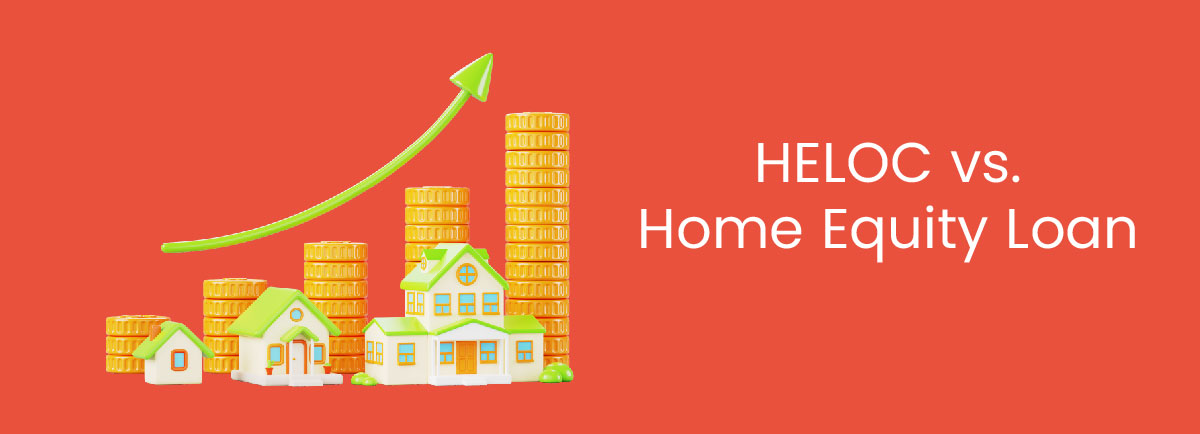
HELOC Vs Home Equity Loan - What's the Difference
13 June 2024 | By INDIE
For many, buying a home represents a significant milestone and a dream come true. It's a symbol of stability, security, and achievement. However, owning a home also means paying loan EMIs on time while your property appreciates in value. This appreciation is how your home becomes a valuable asset that you can leverage to fulfil dreams or tackle financial challenges. Understanding how to effectively utilize this ownership can maximize its potential and ensure your homeownership journey continues to serve your long-term financial goals.
If you want to borrow a home loan to make this dream come true, you might have come across home equity loans and HELOC options. While both offer access to your home's equity, they operate differently and suit different financial needs. Each option comes with its own set of features, benefits, and potential drawbacks. Understanding the comparison - home equity loan vs. HELOC - can help you make informed financial decisions. You can then choose the option that best fits your unique financial situation and goals.
More About HELOCs
Home Equity Line of Credit, commonly referred to as HELOC, is a type of revolving credit that allows you to borrow money against a credit line based on a predetermined limit. Once you have borrowed a certain amount, you need to repay it before being eligible to borrow again. The underlying credit line will be open for you until the loan term ends.
A significant difference between home loans and HELOCs is that the latter is secured by the equity in home. It means the borrower could lose the home purchased if he defaults and is unable to repay the amount borrowed. You should also know that HELOC comes with a variable interest rate. This means the minimum repayment amount can increase if rates rise and vice versa. However, you can find lenders offering HELOCs at a fixed rate. Ultimately, the rate depends on the amount you wish to borrow and your creditworthiness.
Now, let’s look at the other side of the comparison.
More About Home Equity Loans
A home equity loan, as the name suggests, is a fixed term loan based on the equity in the home. You can apply for a preset amount and receive the lump sum amount once your application is approved. This type of loan charges a fixed interest rate and comes with a fixed repayment schedule, which is why it may be called home equity instalment loan.
Here, the equity in the home serves as the collateral required to support your borrowing. This can be the reason why it is called a second mortgage. You must pay the first mortgage to qualify for a home equity loan. Since the interest rate charged is fixed, the repayable amount remains fixed over the life of the loan. Irrespective of the term chosen, you will need to pay predictable EMIs during the loan term.
Recommended Read: Benefits of INDIE’s Line of Credit
Home Equity Loan vs. HELOC: Which One to Choose?
While both these loan options can give you access to funds, let’s find out the key differences between the two:
1. Home equity loans can give you a lump sum amount at a fixed interest rate. This can be a good option if you know the exact amount you need and how you would want to spend it. In return, you can simply make fixed repayments over the loan tenure.
2. On the other hand, HELOCs might be a good option if you are uncertain about the amount you need to borrow or when you will need it in particular. You can get access to funds for a particular period, borrow the same when needed, repay it on time, and then borrow again as per your needs. The only thing you need to keep in mind is that the repayment amount will not be fixed as HELOCs come with a variable interest rate.
Disclaimer: The information provided in this article is generic and for informational purposes only. It is not a substitute for specific advice in your circumstances. Hence, you are advised to consult your financial advisor before making any financial decision. IndusInd Bank Limited (IBL) does not influence the views of the author in any way. IBL and the author shall not be responsible for any direct/indirect loss or liability incurred by the reader for making any financial decisions based on the contents and information.




